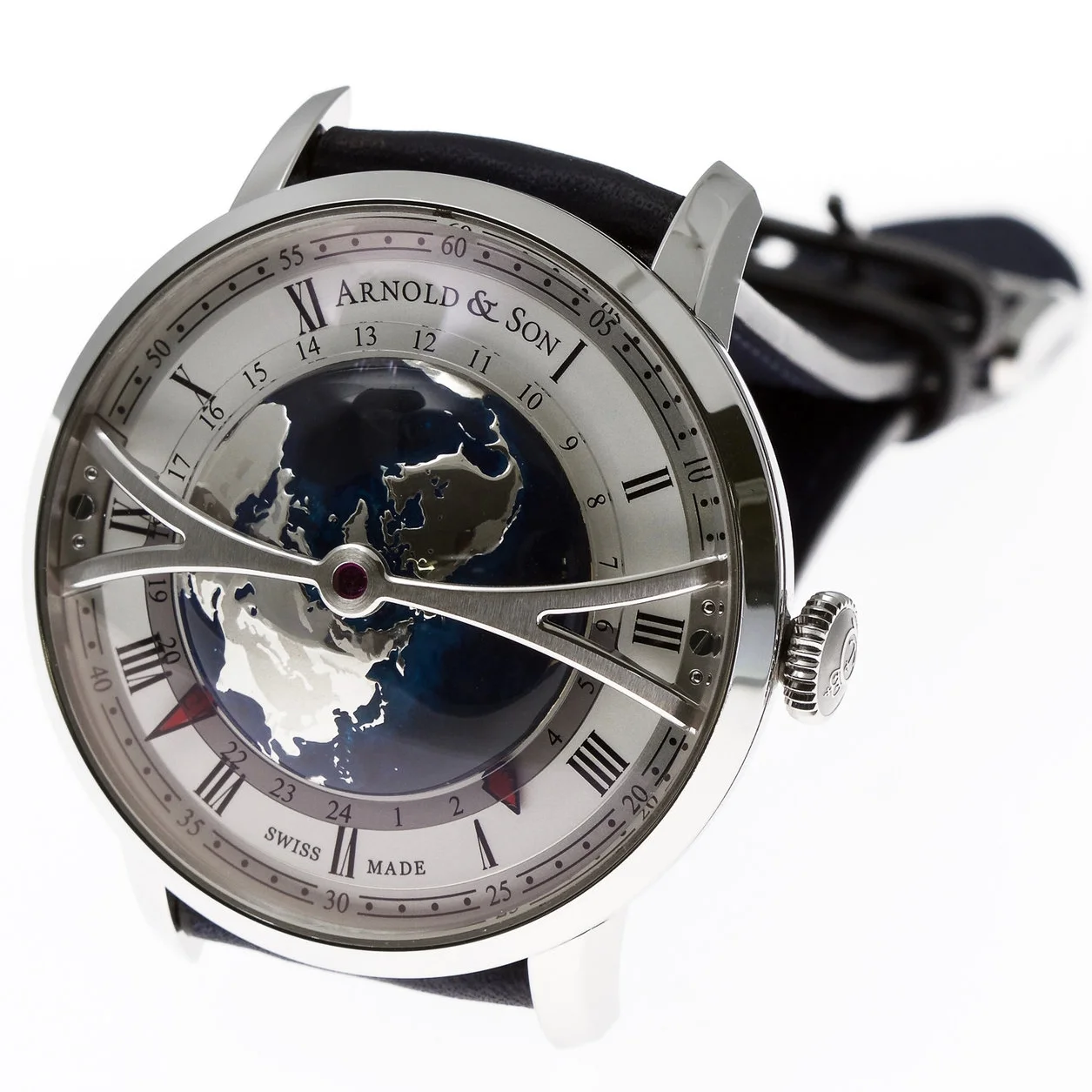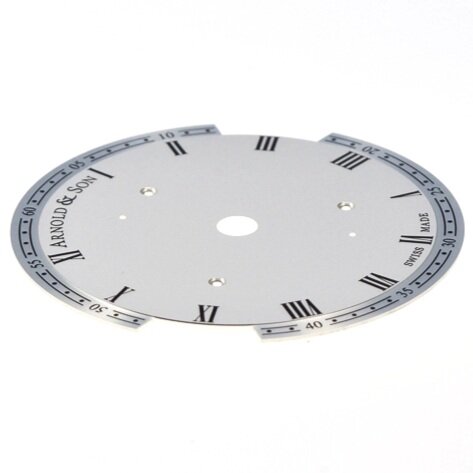The Reason
A world time wristwatch with an earth domed upper hemisphere viewed, centred on the North Pole.
The crown has three-positions. The first is used to manually wind the movement, the second position sets the local time (hour hand) in one-hour increments, and the final position is used to set the hour and minute hands and the world-time. Both the main time display, as well as the world-time function, can be adjusted forwards and backwards.
Stainless steel, diameter 45 mm, cambered sapphire with anti-reflective coating on both sides. Thickness: 17.2 mm on sapphires, water resistant to 30 m
The domed hemisphere is machined from a round piece of brass. The different textures of the oceans and continents are brought out by chemical etching using a mask to protect the higher surfaces, followed by polishing the upper surfaces. The mountainous areas are then sandblasted to create a sense of visual depth, then the oceans are lacquered by hand with different blue tones. The entire world-time disk is then treated with a layer of clear lacquer, and finally, the entire component is polished.
The hemisphere turns once every 24 hours anti-clockwise.
Calibre A&S6022, automatic, 29 jewels, diameter 39 mm, thickness 6.55 mm without earth and bridge, 14.00 mm with earth and bridge, power reserve 45 h, 28’800 vibrations/h
The hemisphere below has been personalised for a particular order for a client in Turkey, (the reason for the highlighted land mass in red).
The dial is CNC machined from brass, then lightly sandblasted in the centre, and circular-grained around the minute track before being silver plated and then printed with the black detail. The dial is held onto the movement by three screws and two steady pins.
The large bridge which traverses the hemisphere supports the sapphire disc and covers the central nut that holds the hemisphere in place.
Silver/white opaline and circular brushed 24-hour sapphire. The hands are made from blued steel and the tips are lacquered manually, remaining translucent to be able to view the hours they cross.
Calibre A&S6022. Dial side showing the large plate supporting the dial and hemisphere.
The tall central assembly which carries the minute and hour hands at the bottom underneath the hemisphere. The domed hemisphere is then held onto the square section at the top and in turn secured with a nut.
The world time assembly.
The various stages of disassembly of the world time mechanism.
Given the weight of the hemisphere, the overall construction is heavily engineered to be able to absorb the inevitable knocks the watch will experience while being worn.
The case once the movement is removed.
The rotor is engraved with a hobnail motif with a black ADLC treatment, the white lacquer is added by hand.
The movement outside of the case with the large world time plate, and rotor mass removed. The Geneva stripes are radially cut from the centre of the watch plates.
The ratchet wheel removed showing the jewelled bearing for the barrel arbour.
The small bridge for one of the reverser wheels plus the wheel being removed.
The automatic reverser wheels are made from 2 layers of copper beryllium, one wheel and one disc sandwiching a click system allowing the assembly to block an wind in one direction and move freely in the opposite. The two wheels together make for an automatic system which winds in both directions as the rotor moves clockwise and anti-clockwise.
Pallet cock, pallets (Swiss lever) & escape wheel.
The three quarter bridge covering the two trains, (automatic and going). Similar in form to early English pocket watches.
The movement with the three quarter plate removed.
Summary
Making a simple watch complicated, is simple. Making a complicated watch simple, is far more challenging and this watch is representative of such an approach. The result is a well-thought-out world time watch with an intuitive and highly visual system to locate the hour around the world.
To learn more about Arnold & Son www.arnoldandson.com













































